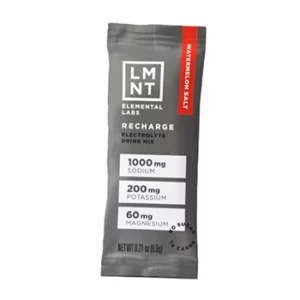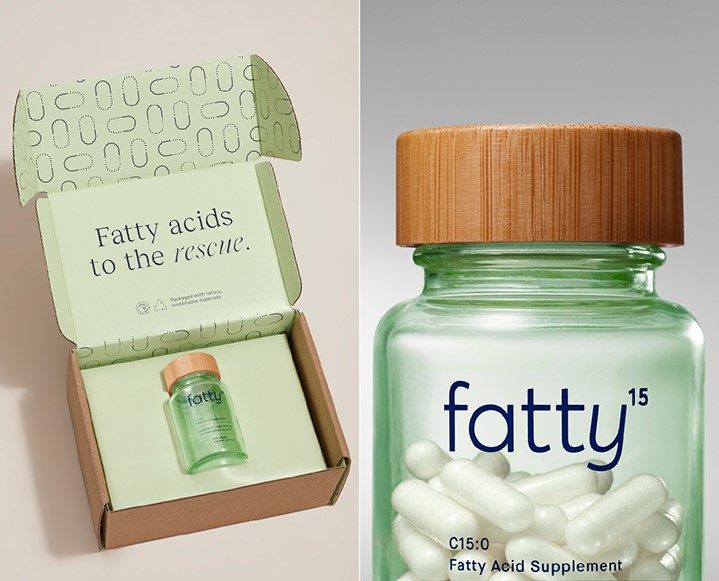Wellness experts like our March guest editor, Dr. Mark Hyman, author of Eat Fat, Get Thin, are redefining how we look at healthcare on a fundamental level. He’s stirring up long-held ideas about fat and sugar in his new book and setting the record straight on the health myths that have shaped what we as Americans eat on a daily basis. We’re going back to the basics and debunking 3 health myths that have the potential to trap us in bad patterns of eating. Here’s Dr. Hyman…
The world of medicine is constantly changing. There’s always new research and science coming out and if you’re in the know, which many TCM readers are, it’s easy to keep up with the latest wellness trends and make the best choices when it comes to our health. Unfortunately, most of the world gets their advice from the government and doctors who are using outdated research to make recommendations.
I’m trying to change the world of medicine. I’m trying to reach people far and wide and tell them the truth about the most powerful medicine we have available: the food that we put at the end of our fork!
It all starts with dispelling old myths that keep us sick and fat! Let’s go through my top 3 myths about health and dispel them for good…
3 Health Myths That Keep Us Sick
Myth #1: All Calories Are Created Equal, So Avoid Fat. The “calories in/calories out” formula for weight maintenance became embedded in the halls of academia and in government policy and the calorie counters won. Even the latest food labeling regulations enhance the prominence of calories by making them big and bold on the label. New laws make it mandatory for fast food restaurants to place calorie counts on menus. It stands to reason that if all calories are equal and fat, for example, contains more than twice the calories as carbs or protein (9 calories per gram versus 4 calories per gram), then the best way to cut calories was to cut out fat. You could eat more food if you ate bread and pasta than if you ate butter, because butter was too energy dense. This is what I was taught and believed – until new research turned this idea upside down.
The truth is there are good and bad calories. And that’s because this involves more than a simple math equation. If you eat the same amount of calories in kale or gummy bears, do they do the same thing to your body? No!
When we eat, our food interacts with our biology, which is a complex adaptive system that instantly transforms every bite. Every bite affects your hormones, brain chemistry and metabolism. Sugar calories cause fat storage and spikes hunger. Protein and fat calories promote fat burning.
What counts even more than the quantity of calories are the quality of the calories.
Myth #2: All You Need is Willpower: This is one of the most insidious lies pushed on us by the food industry and government.Their mantra is this: Eat less, exercise more.
The implicit message in this idea is that the real reason we are all fat and sick is that we are lazy gluttons; if we just stopped stuffing our faces and got up off the couch and moved our butt, we would lose weight; it is a moral failing, weak psychology, apathy or worse that prevents people from moderating their food intake and exercise. This is nonsense.
If you try to control your appetite with willpower, you will fail. We have short-term voluntary control and can starve ourselves but then our bodies compensate by slowing our metabolism and dramatically increasing appetite. It is unsustainable. If I asked you to hold your breath for 15 minutes, no matter how bad you want to make it happen, you’re just not designed to pull that off.
When your taste buds, brain chemistry, hormones and metabolism have been damaged by sugar and processed foods, willpower alone won’t do it. If you are addicted to sugar and refined carbs you cannot white knuckle it for very long. You have to naturally reset your brain chemistry and hormones so your body will automatically self regulate and allow the cravings to disappear and the hunger to come back into balance.
When your metabolism has been hijacked, you need to detox from the addictive power of sugar and flour and replace them with real, whole, high quality foods. That will allow your appetite and weight to automatically regulate without willpower.
Myth #3: It’s Expensive to Be Healthy. Even if time and money aren’t on your side, you can still eat healthy. This is one of the most common misconceptions I hear. I understand the challenges of trying to eat well with limited financial resources, limited time, or both. But you don’t have to be rich or retired to eat well and take care of yourself.
When people tell me eating healthy is expensive, I ask them to factor in what they spend on designer coffees, bodegas, grab-and-go meals and other conveniences that might spare them a little time, but at the expense of their health.
Research shows eating healthy, whole, real food isn’t necessarily more expensive than eating junk food, fast food, processed foods or convenience foods. In fact, the top three things purchased in supermarkets are all drugs: sugar, nicotine, and alcohol! If you give up those “drugs,” your grocery bill will go down dramatically.
There is a great resource for eating well for less. It is from the Environmental Working Group (where I am on the board) and it is a free downloadable guide called Good Food on a Tight Budget.
Want a couple more healthy grocery shopping tips? We’re talking about our Whole Foods issues here + sharing about the super-helpful app that’s changed
our grocery shopping quandries for good!
















